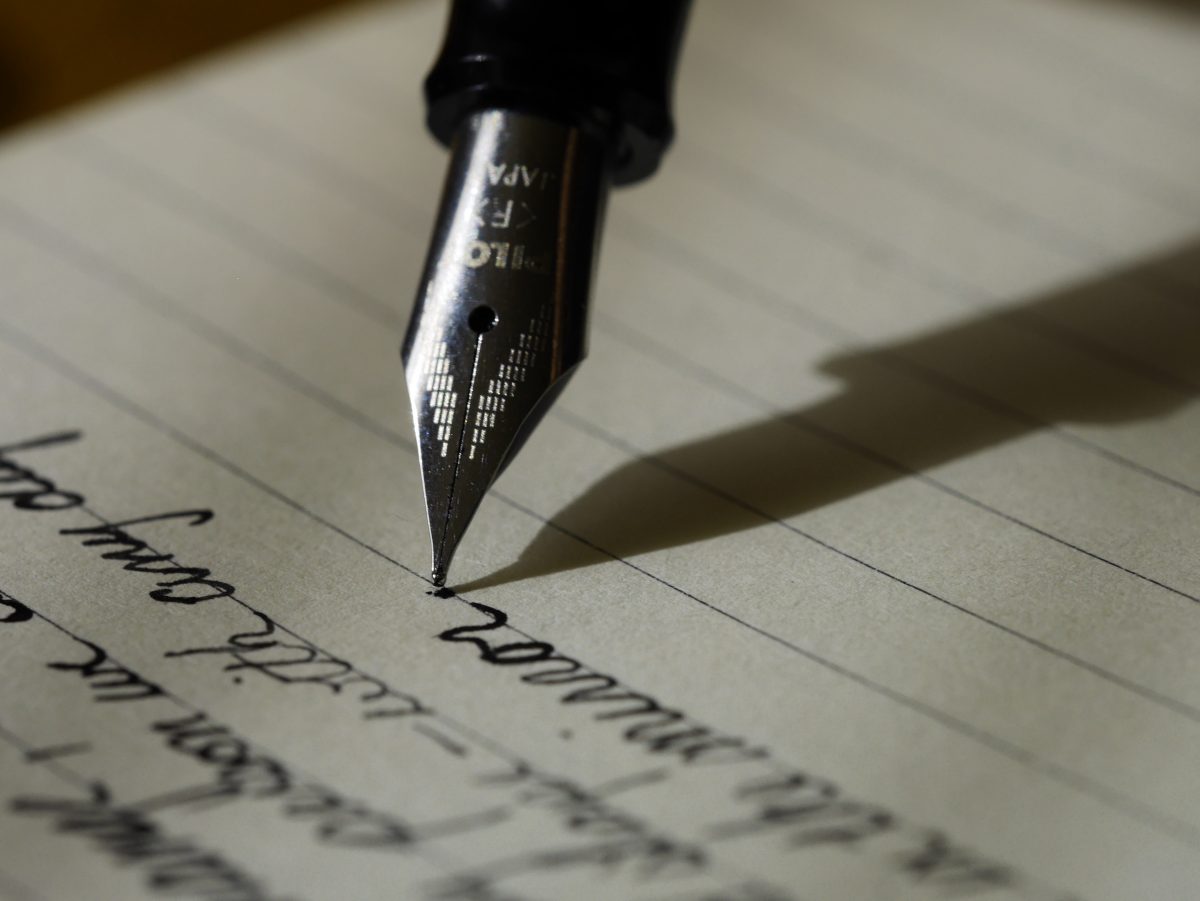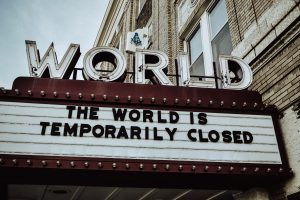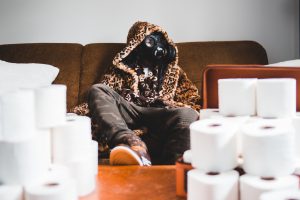I often wonder how the world will come to an end. It’s only a matter of time. The real question is whose hand it will be by. Scientists say it won’t naturally happen for at least another 3.5 billion years, when the sun expands and burns hot enough to vaporize our oceans and, by proxy, eliminate most if not all land-dwelling creatures. But of course this is circumstantial, as astrophysicists have also said that if, by any means, the sun creates even a single atom of iron somewhere deep inside its boiling belly, the whole thing will blow up, and our solar system at large will more than likely cease to exist. A comforting thought, to be sure. The Mayans predicted it was going to happen eight years ago, or so some people have said. Still others say that if we continue to hurtle down our path of climate change, it will only be about fifty years at best before our world becomes nigh-unlivable. People of various religions claim it could happen whenever their respected God decides we’ve had enough, and from there things are to be determined.
Certainly I think we’ve all had enough of this year, one with enough bad stuff to spread liberally across the entire decade. But I’m one who likes to think concisely, and be one to have an answer, even if said answer is an unfathomable one. But we don’t have a definitive answer on the end of the world, nor an unfathomably vague one. Who is there to believe? There’s truth in everything. My father taught me something important when I was younger that I still live by to this day, though I’m sure he isn’t the proprietor of this teaching. He told me that when there’s an argument, it’s best to hear out both sides, because each side will inevitably have some truth and some lie in it. You take both sides of the story and consider them. Somewhere in the middle, between the opposing thoughts, is the truth.
So I take into consideration all that has happened to us as humans this year. How polarized we all are about this and that. How unwilling so many people are to work together despite our differences. And truth be told, it’s really scary to be somewhere in the middle. It feels like you’re the bone between which two stray dogs are fighting over, threatening to snap you in half. Here I find solidarity in the worlds of J.R.R. Tolkien, spoken through the mouth of Bilbo Baggins:
“I feel thin, sort of stretched, like butter scraped over too much bread.”
from The Fellowship of the Ring
On the one hand, both sides of the argument threaten to “cancel” you, to shut you down and ensure you never have a say because of a single slip up, or an differing opinion that doesn’t follow the rhetoric. On the other, you have a philosophy that you want to live by, and things you want to say that make you expressly human. I want to be able to think freely and not feel the threat of someone getting angry at me, or breaking off what seemed to be a good relationship simply because I don’t always agree with them on everything.
I’m a naturally cautious individual, certainly not shy. So many introverts such as myself are misidentified as not wanting to speak up because we’re shy. Instead, I like to think we bide our time. For in those very few moments where we are able to actually fit in a word edgewise, we have to make it count. We have to make sure we don’t slip up and make ourselves look dumb, because there are precious few words left to fix those mistakes. Then if you take a look at the current state of society, it makes it that much harder to want to speak up lest you look dumb or uninformed or even just unbiased on hot-button issues. I spend a great deal of my time alone with my own mind as my only companion, crafting up my next statements so as to ensure I’m not sidelined or made irrelevant.
It’s hard to write this even now, because I’m speaking from the heart instead of from the mind. Being on the Internet usually helps, because you are just one person in a murky crowd of so many others, each with their own thoughts to share. However, given the circumstances, I’m here, offering my thoughts to a limited pool of people, people who really don’t know me well, but well enough to judge me based on my words rather than my character. I’m not being trying to be critical of those who will read this rambling. I’m not saying that by expressing myself I will be immediately be written off and never heard from again, but rather that every time you speak, regardless of who to, you always run a risk of it.
On the topic of words, I’ve wanted to be a writer from a very young age. So naturally I have words to offer to the melting pot that is society. That is my gift to contribute to humanity. However, those very words are under threat of being rejected, extinguished, diminished, and eradicated just for existing. Of course, this scares me. If all I have to offer is words, but I say the wrong thing, I won’t be allowed to offer those words anymore. I fear if that happens those words would well up inside of me and I would certainly explode.
I want to be able to share these words with people, and not at arm’s length. I long, especially now after weeks of being inside and away from the people and places and things that I love, for the ability to sit down with someone and have an intimate conversation. I want to be able to pour out all these built up emotions that I have been holding back without fear of hasty repercussion. I want to feel like I belong amongst the whole of humanity, rather than be part of the group which is fought over for the benefit of this or that. In other words, I don’t want to feel like that butter, spread too thinly across a piece of bread.
This has been an extremely cathartic experience. It helps, but only temporarily of course. Soon I’ll learn of more bad news, which calls to mind the meme that has been floating around the internet courtesy of The Simpsons, in which Bart says:
“This is the worst day of my life.”
To which Homer replies, with finger extended to emphasize his point:
“The worst day of your life so far.”
And I think, “Wow.”
I mean, when The Simpsons are right, they are most certainly right. Who’s to say 202o surpasses all when we have anywhere from a few more seconds to 3.5 billion more years ahead of us? Maybe it’s time to think a bit more positively. I personally think about all the time I’ll be able to spend with friends and family when lockdowns are finally let up, all the stuff I’ll be able to encounter and the things I will be able to learn in person. All of the different foods I’ll be able to eat again, and the list goes on.
Coronavirus sure has sucked for everyone, though undoubtedly more for some than others. In fact, to say that it “sucked” for those who lost their lives to the virus is an extreme undermining of their sacrifice. In this case, I’m not trying to be offensive to those who have suffered an exorbitant amount. Truth be told, COVID has stolen lives, jobs, relationships, face-to-face social interaction, and everything else under the sun. But it has (for the most part) united us all under a common goal: do what we can for our fellow humans and for ourselves to ensure a healthier world. We’ll all come out of this changed people, and it might be a positive step towards unification. After all, it’s through suffering that change is brought about. I think back in history to times like the Spanish Inquisition, the Black Plague, World War I, the Great Depression, the Spanish Flu, World War II, et cetera, et cetera. Did we not come out of all of these moments of great suffering stronger people? Certainly just as many people lost their livelihoods and, for some, their lives at large, but many came out of it with great lessons to pass onto the next generations- lessons of friendship, of community, of the pure tenacity of the human spirit.
And so I have no doubt that we will overcome all that has been thrown at us over this year. We’ll have lessons to pass on to our children and in turn they will pass it on to theirs.
And if worse is to come, we’ll be ready.








